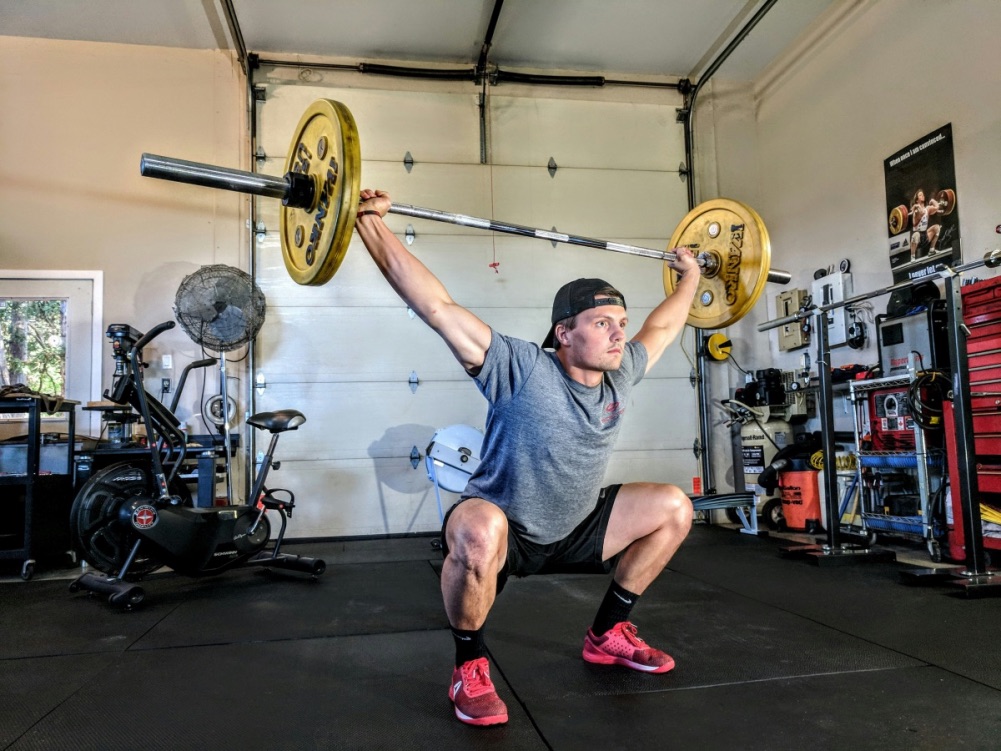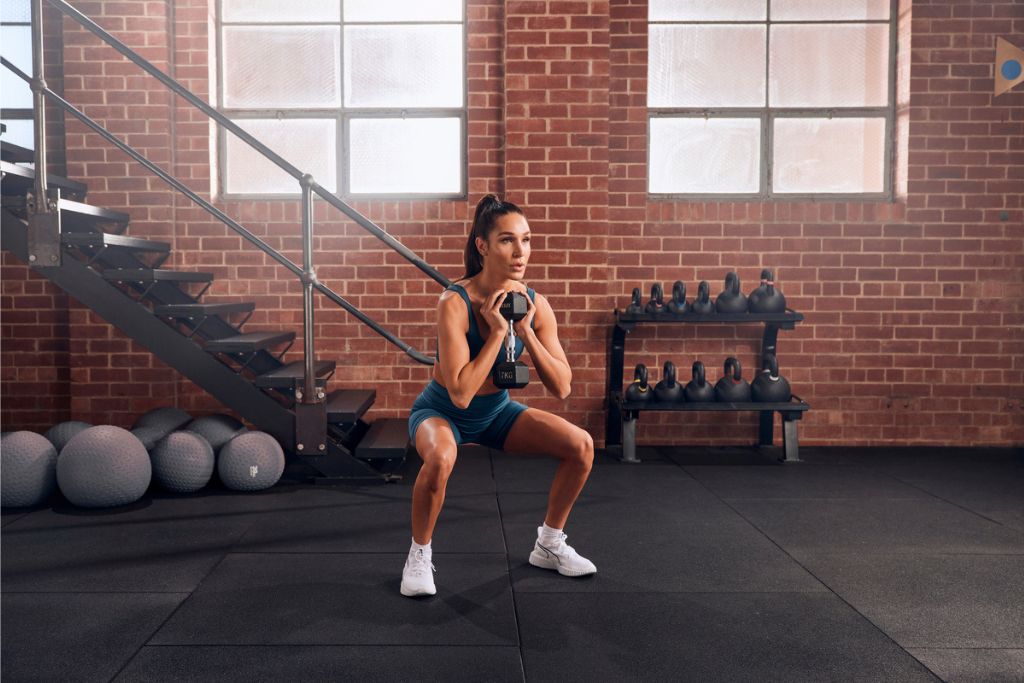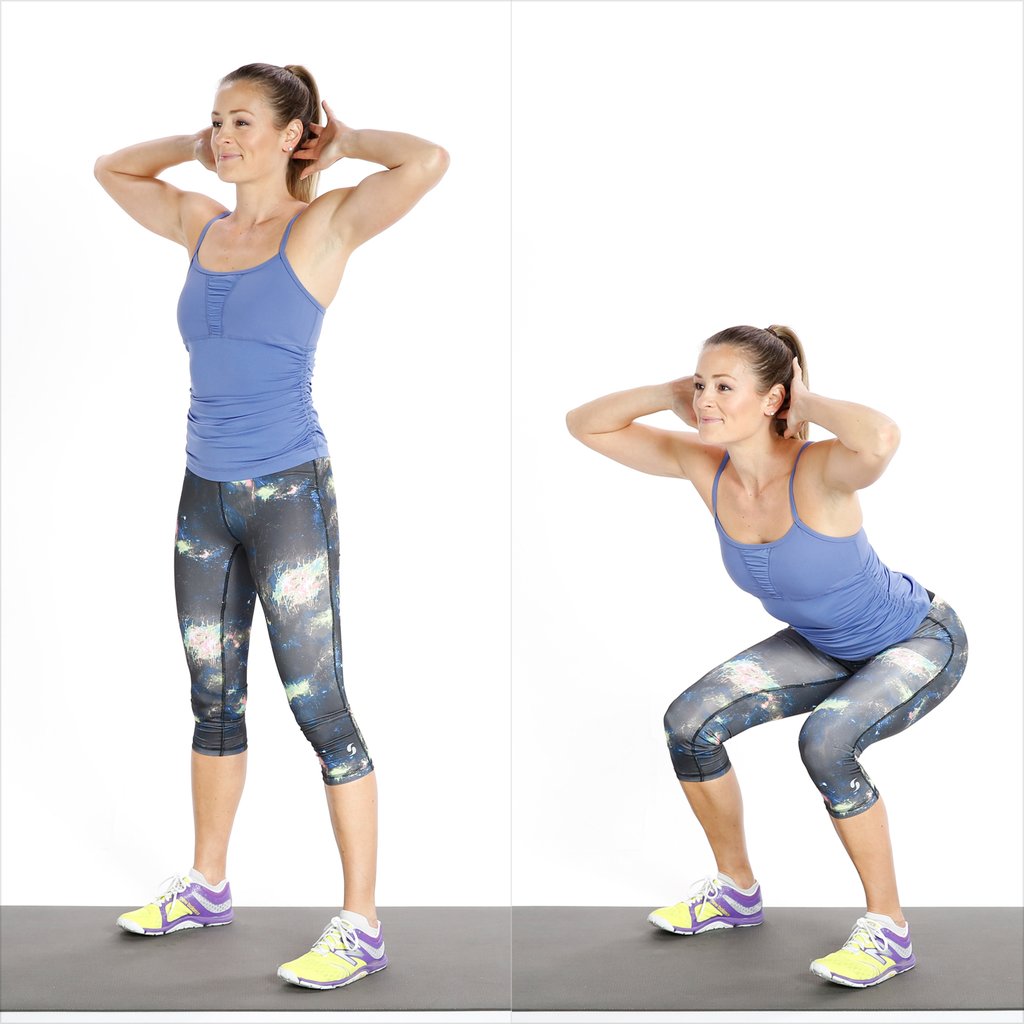Squats are celebrated by health and fitness experts as one of the most effective exercises for overall fitness and well-being. Backed by research, squats engage multiple muscle groups, improve functional strength, and support metabolic health, making them a powerful addition to any exercise routine. Here’s a closer look at why squats are considered a true game changer for health, and the science that supports their benefits.
1. Builds Lower Body Strength
Squats are highly effective for building lower body strength. Research published in The Journal of Strength and Conditioning Research demonstrates that squats activate key muscle groups, including the quadriceps, hamstrings, and glutes. These muscles are critical for everyday activities, from walking and climbing stairs to lifting objects, making squats an essential movement for functional fitness.

2. Engages Core Muscles
Squats are not just a lower body exercise—they also require core activation, engaging the abdominals, obliques, and lower back to maintain stability and protect the spine. According to a study from The International Journal of Sports Physical Therapy, squats are particularly effective for strengthening the core, which can lead to improved posture, reduced risk of lower back pain, and enhanced balance.
3. Enhances Joint Health and Mobility
Joint mobility and stability are critical as we age, and research supports the role of squats in promoting joint health. A study from The American Journal of Sports Medicine shows that squats improve the range of motion in the knees, hips, and ankles, helping to strengthen the ligaments and tendons around these joints. This enhanced mobility makes squats beneficial for both athletes and individuals looking to maintain functional movement in daily life.

4. Boosts Metabolism and Supports Fat Loss
Squats are a compound movement that engages multiple muscle groups, which requires significant energy expenditure and burns calories effectively. The Journal of Applied Physiology published findings that compound exercises like squats help boost metabolic rate, particularly when combined with resistance or weight training. As lean muscle increases, the body’s resting metabolic rate also rises, which supports fat loss and aids in weight management over time.
5. Improves Balance and Coordination
A study from Gait & Posture found that squats enhance balance and coordination by activating stabilizing muscles, which are crucial for maintaining posture and control. These benefits are particularly important for older adults, as improved balance reduces the risk of falls. Squats also enhance neuromuscular coordination—the way the nervous system and muscles communicate—helping individuals maintain control over movement.
6. Promotes Functional Fitness
Squats are a highly functional movement that mimics daily activities, such as bending, lifting, and sitting. A study in The Journal of Strength and Conditioning Research highlights the role of squats in promoting functional fitness by building strength in a way that translates to real-life tasks. Functional fitness exercises like squats help make movement more efficient and reduce the risk of injury in daily activities.

7. Supports Bone Health
Squats are a weight-bearing exercise, which is essential for bone health. Research from The National Osteoporosis Foundation has shown that weight-bearing exercises like squats promote bone density and help prevent osteoporosis. By placing stress on the bones, squats stimulate bone growth and strength, which is especially valuable for individuals at risk of age-related bone loss.
8. Reduces Injury Risk
Strengthening muscles through exercises like squats helps create a stable foundation for the body, which is essential for injury prevention. A review in Sports Health found that athletes who regularly practice strength exercises, including squats, experience fewer injuries. By building strong, stabilizing muscles in the lower body and core, squats reduce the likelihood of strains and sprains, supporting long-term joint health.
9. Accessible and Versatile
One of the greatest advantages of squats is that they require no equipment, making them accessible to people at all fitness levels. According to The American Council on Exercise, bodyweight squats can be done anywhere, and variations like jump squats, goblet squats, and split squats allow individuals to customize their routine. This versatility means that squats can be incorporated into any workout plan, regardless of access to a gym.

10. Improves Mental Health
Exercise, including squats, is known to release endorphins, which boost mood and reduce stress. Research from The American Psychological Association shows that regular physical activity reduces symptoms of anxiety and depression, helping individuals experience improved mental well-being. The self-confidence gained from physical strength also contributes to a positive mindset, creating a reinforcing loop of mental and physical health benefits.
Summary: Why Squats Are a Health Game Changer
Squats are backed by scientific research as an effective, multi-benefit exercise that supports both physical and mental health. From building lower body and core strength to improving balance, joint health, and even mental well-being, squats are a powerful tool for achieving and maintaining overall health. Whether you’re looking to improve functional fitness, prevent injury, or enhance metabolic health, squats are a versatile and accessible exercise that can help you reach your goals.







